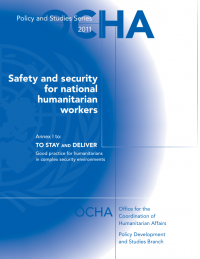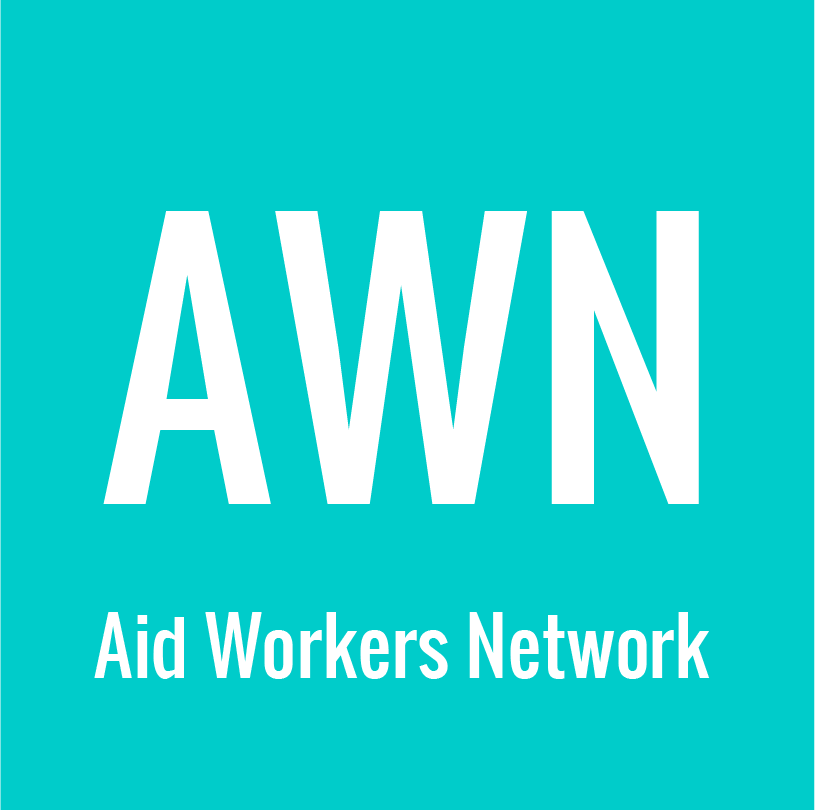
- February 16, 2017
Annex I to: TO STAY and DELIVER – Good practice for humanitarians in complex security environments
Abby Stoddard, Adele Harmer and Katherine Haver
Introduction
Origin of this report
This report highlights the issue of operational security for national humanitarian aid workers and partner organisations, drawing from and expanding on a recent study commissioned by OCHA: To Stay and Deliver: Good Practice for Humanitarians in Complex Security Environments (Egeland, Harmer and Stoddard 2011). A version of this paper also appears within the Aid Worker Security Report -2011 (Humanitarian Outcomes, 2011)
The principal findings include that despite overall improvements in aid agencies’ security risk management, national aid workers perceive continued inequities in security support compared with their international counterparts. National aid workers, while less subject to major attacks per capita than international aid workers, nevertheless form the majority of victims, and their specific security needs require more attention.
The OCHA-commissioned study on operating in complex security environments included a multi-language webbased survey of national aid workers in complex security environments to elicit their perspectives on key issues regarding their security. The survey findings are complemented by a series of interviews that the research team conducted among international aid organisations to assess some of the broader policy and operational considerations regarding national staff security.
Methodology
The web-based survey of national aid workers was conducted as part of the OCHA study on operating in complex environments. It consisted of 27 mostly closed-ended questions, and gave respondents the option to elaborate further with written comments. It was launched July 2010 in English, French, Spanish and Arabic. The survey was disseminated globally but with an emphasis on the highest-risk countries such as Afghanistan, Iraq, Pakistan, Somalia and Sudan. The survey, which remained open after the OCHA study was finalised, ultimately garnered 1,181 respondents – and thus reached a greater number of nationals than are typically represented in research, even with extensive fieldwork. To ensure maximum honesty, respondents were anonymous, with the only requirement that they identify their type of institutional affiliation (UN agency, INGO, national NGO, host government, etc.). Respondents were primarily comprised of UN national staffers (66 per cent), and INGO national staffers (30 per cent), with the small remainder representing host country NGOs and national Red Cross/Red Crescent societies.
